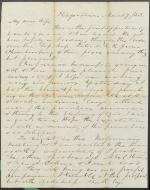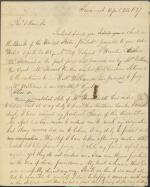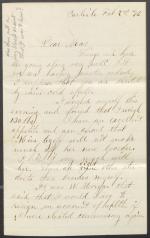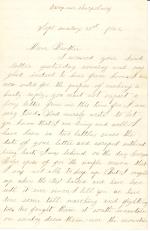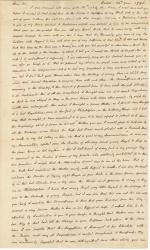"John and Mary's College" (Spahr Lectures Vol. 2)
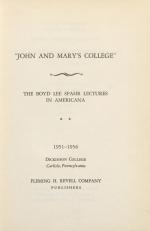
Publisher: New York: Fleming H. Revell Company
Volume 2 of the Boyd Lee Spahr Lectures in Americana series includes essays from scholars that focus on various aspects of Dickinson College's history.


